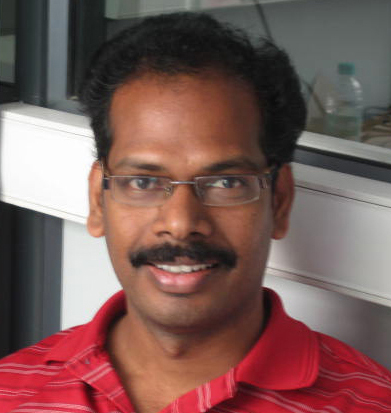
Associate Professor
E-mail: kvengadesan at rcb dot res dot in
Structural biology of host-microbe interactions in health and disease, bacterial pili and biofilm
Many bacteria assemble multitude of surface proteins and assemblies like pili to adhere to biotic and abiotic surfaces. This bacterial adherence is a key step for bacterial colonization, pathogenesis, and even for beneficial effects to the host and environment. The structural biology of Gram-positive bacterial pili is an emerging area of research, while much progress has been made in Gram-negative bacterial pili. Pili of Gram-negative bacteria are composed of non-covalently assembled protein subunits (pilins), for example, chaperon/usher assembled pili, type IV pili, curli pili. In contrast, the pili in Gram-positive bacteria are made of covalently linked pilins with the help of cysteine proteases called sortases. The presence of pilus gene clusters that encode pilins and related proteins have been identified in several Gram-positive organisms. Certain unique structural features possibly dictate the diversity in their cellular targets and the resulting infections or beneficial effects distinguish these organisms and their pilus type from one another. Our lab works on bacterial cell surface adhesins with focus on pilus-like structures in Gram-positive pathogenic and non-pathogenic organisms towards understanding their architecture and assembly, and their role in adherence and biofilm formation.
Dr. K Vengadesan
Associate Professor
Regional Centre for Biotechnology
NCR Biotech Science Cluster
3rd Milestone, Faridabad-Gurgaon Expressway
P.O. Box No. 3, Faridabad - 121 001
Haryana (NCR Delhi), India
E-mail: kvengadesan at rcb dot res dot in
Phone: 91 129-2848825